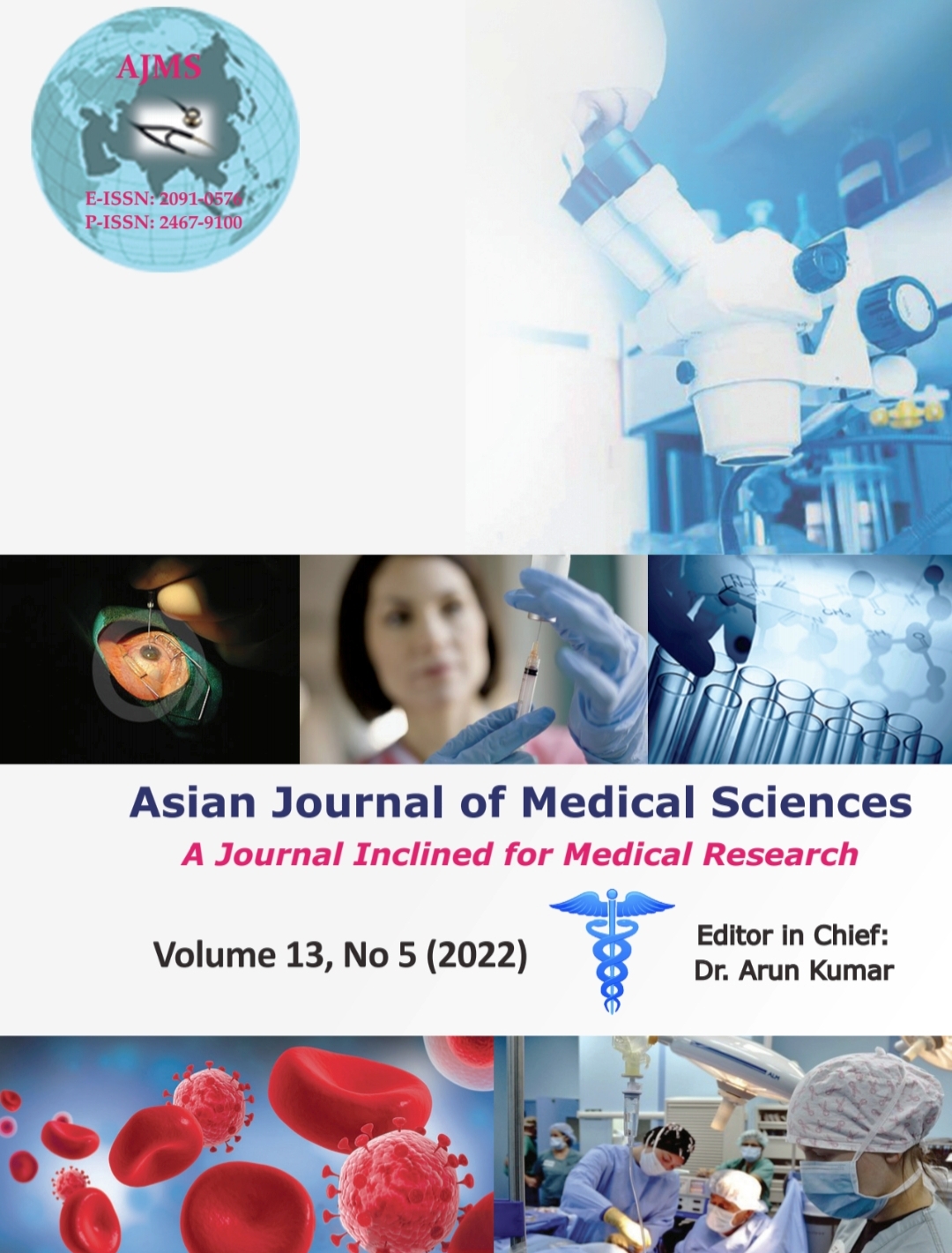Assessment of carcinoembryonic antigen as a prognostic marker in ovarian malignancies treated in a rural hospital of West Bengal
Keywords:
CA-125 Antigen, Carcinoembryonic Antigen, Epithelial Ovarian CancerAbstract
Background: Ovarian neoplasms are the second most common cause of gynecological malignancy both worldwide as well as in India. Innocuous clinical presentation and late diagnosis contribute to the mortality toll of this neoplasm. Thus, early diagnosis remains the cornerstone to increase the survival rate of ovarian neoplasms. Though, cancer antigen 125 (CA-125) is a time-tested marker for ovarian neoplasm diagnosis yet its increment in benign gynecological conditions questions its own diagnostic specificity. Carcinoembryonic antigen (CEA), the conventional marker for colorectal cancer detection, is found to be associated with epithelial ovarian cancer.
Aims and Objectives: This study was aimed to find the efficacy of CEA along with CA-125 in the early detection of ovarian neoplasm and predicting the outcome.
Materials and Methods: This hospital-based longitudinal study was conducted in the Biochemistry department of Bankura Sammilani Medical College. Established cases of ovarian neoplasm were recruited as study population using pre-defined inclusion and exclusion criteria. Serum CEA and CA-125 were estimated at the time of diagnosis, 6 weeks, 6 months, and 12 months after surgery.
Results: There was no significant difference between the median concentration of CEA among the four phases of treatment. Serum CEA was positively correlated to CA-125 during all phases of treatment (Ρ=0.653, P=0.000). The binary logistic regression revealed that CEA (odds ratio=1.2, 0.83–1.69) had higher chances to be associated with ovarian stages associated with cancers beyond Stage IC. CEA had a lower sensitivity and specificity in comparison to CA-125.
Conclusion: This study suggested CEA, a theranostic marker, can supplement the present biochemical diagnostic modalities to improve diagnostic and prognostic efficacy cost-effectively.
Downloads
Downloads
Published
How to Cite
Issue
Section
License
Copyright (c) 2022 Asian Journal of Medical Sciences

This work is licensed under a Creative Commons Attribution-NonCommercial 4.0 International License.
Authors who publish with this journal agree to the following terms:
- The journal holds copyright and publishes the work under a Creative Commons CC-BY-NC license that permits use, distribution and reprduction in any medium, provided the original work is properly cited and is not used for commercial purposes. The journal should be recognised as the original publisher of this work.
- Authors are able to enter into separate, additional contractual arrangements for the non-exclusive distribution of the journal's published version of the work (e.g., post it to an institutional repository or publish it in a book), with an acknowledgement of its initial publication in this journal.
- Authors are permitted and encouraged to post their work online (e.g., in institutional repositories or on their website) prior to and during the submission process, as it can lead to productive exchanges, as well as earlier and greater citation of published work (See The Effect of Open Access).




